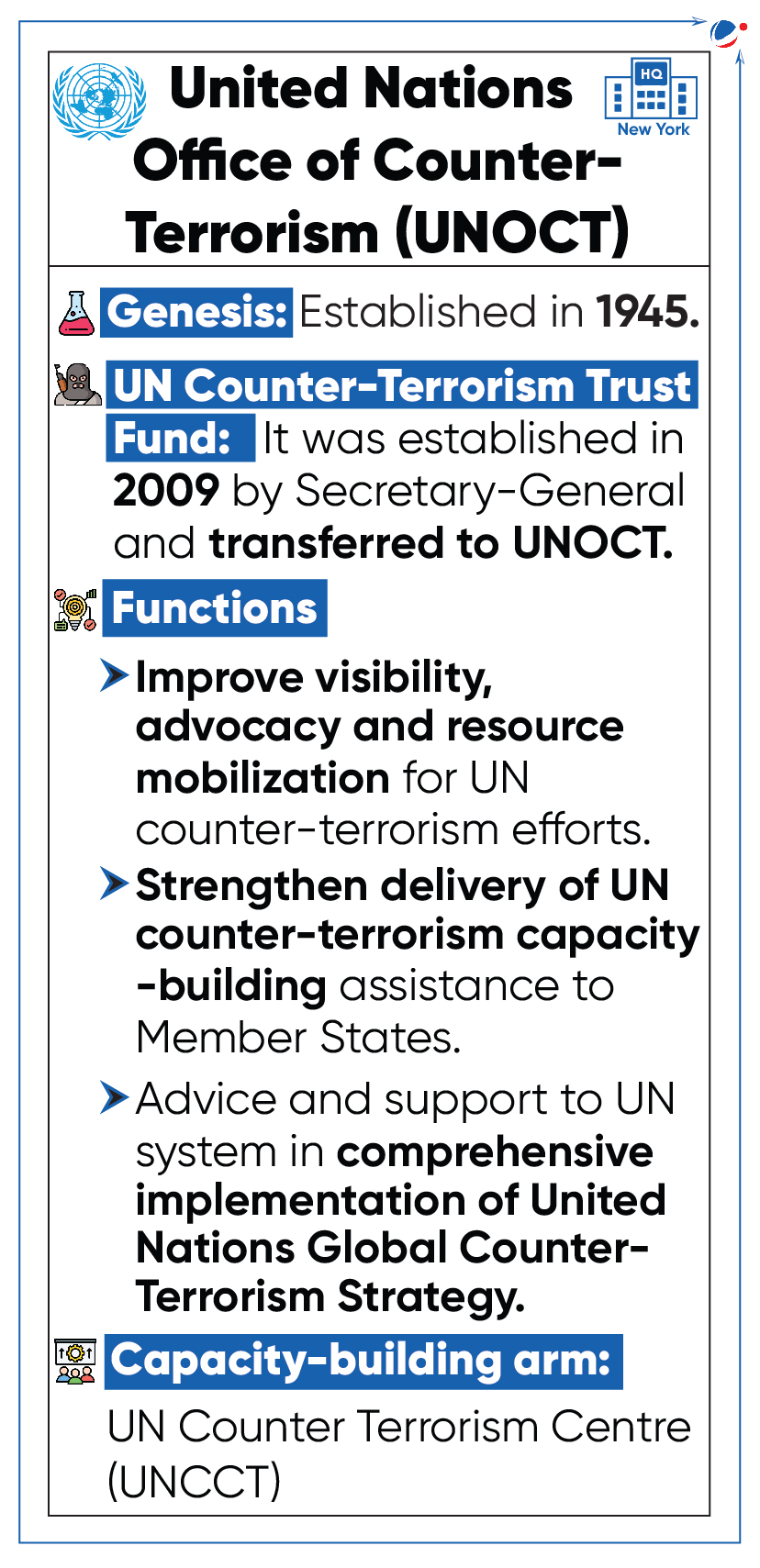Why in the News?
At the 19th Interpol Conference of Heads of National Central Bureau (NCB), India highlighted the threat of the online radicalisation.
More about the News
- Along with online radicalisation, India also highlighted issue of organized crime, terrorism, drug trafficking, money laundering, and cyber enabled financial crimes.
- Also, India condemned all forms of terrorism and conveyed that there can be no distinction between "good terrorism, bad terrorism".
About Online Radicalisation
- Definition of Radicalisation: It can be seen as a phenomenon of people embracing views which could lead to development of extremist ideas.
- However, there is no universal definition of radicalisation.
- These views can be social, political or religious.
- Online penetration of radicalisation: In the recent years, the trend of online radicalisation has increased due to rising internet penetration.
- Encrypted messaging apps such as whatsApp provide safe environment for communication.
- Gamification techniques are also being used. In this, gaming elements are used to transmit extremist ideology to children.
- Radicalisation often encourages a threat of lone wolf operations.
- Lone-wolf operation is the term used to describe someone who acts alone in a terrorist attack without the help or encouragement of a government or a terrorist organization.
Factors Responsible for Online Radicalisation | |
Push Factor | Pull Factor |
|
|
Major Challenges in Curbing Online Radicalisation
- Regulation and International cooperation: Radicalisation and related terms such as terrorism, violent extremism, and de-radicalisation are still loosely defined; there is no universal consensus on their definition.
- Many Countries primarily view such activities from their national interest rather than from the perspective of humanity. E.g., Houthis (a rebellion group in Yemen) is supported by Iran.
- Technological Advancement: Dark Web and Virtual Private Network (VPN) are being used for radicalisation.
- Additionally, online radicalisation activities are generally carried out from foreign territories making it difficult to trace them.
- Foreign Funding: Radicalisation is fueled by the cross-border foreign funding which gets further reinforced due to nexus between State and Non-state actors .
- Political Narrative: Hate speech and communal tension which are often used in public speeches and elections are uploaded on online platform and widely circulated to create environment of hatred.
Key Initiatives to curb Online Radicalisation
Global
- United Nations Global Counter-Terrorism Strategy: It enhances capacity of the nations to tackle online radicalisation.
- European Union's Digital Services Act (DSA): Its main goal is to prevent illegal and harmful activities online and the spread of disinformation.
- Global Internet Forum to Counter Terrorism (GIFCT): An NGO, founded by Meta, Microsoft, YouTube and X, in 2017, the Forum was established to foster technical collaboration among member companies, advance relevant research, and share knowledge.
- Tech Against Terrorism: A partnership between technology companies, governments, and United Nations Counter-Terrorism Committee Executive Directorate (CTED).
- Christchurch Call: A community of over 130 governments, online service providers, and civil society organisations acting together to eliminate terrorist and violent extremist content online.
India
- Legal: Unlawful Activities (Prevention) Act (UAPA) 1967 has been enacted. Organisation like 'Students Islamic Movement of India (SIMI)' has been declared as an 'Unlawful Association' under it.
- In 2020, Ministry of Home Affairs (MHA) has, for the first time, approved a research study on status of radicalisation in India. The study would attempt to legally define "radicalisation" and suggest amendments to the UAPA.
- Administrative/Institutional: Counter-Terrorism and Counter-Radicalisation Division (CT-CR) has been established under the MHA to help state governments, security agencies and communities in preventing the youth from embracing extremism.
- Cyber-related: Enaction of the Information Technology Act of 2000, Indian Cybercrime Coordination Centre (I4C), established by MHA etc.
- State-led Initiative:
- Maharashtra Police's de-radicalisation programme (Maharashtra Model of de-radicalisation): Under it no criminal case be registered against a "candidate" selected for the programme and complete confidentiality is maintained.
- Operation Pigeon (Kerala): Under it, counselling sessions for the youth were organized.
- Initiatives by Indian Army:
- Sahi Raasta programme to bring back the radicalised or vulnerable youth of Jammu & Kashmir into the mainstream.
- Operation SADBHAVANA' for welfare activities such as running of Army Goodwill Schools, Infrastructure Development Projects etc. for the children living in remote areas of UT of Ladakh.
Conclusion
Technology companies are key stakeholder in it. They should ensure content moderation with the help of Artificial Intelligence, removing content on reporting, blocking accounts which spread prohibited content etc. India must develop a comprehensive policy that focuses both on de-radicalisation and counter-radicalisation and works in tandem with the peculiarities of each state.
Related News: India contributes to UN Counter Terrorism Trust Fund

|



